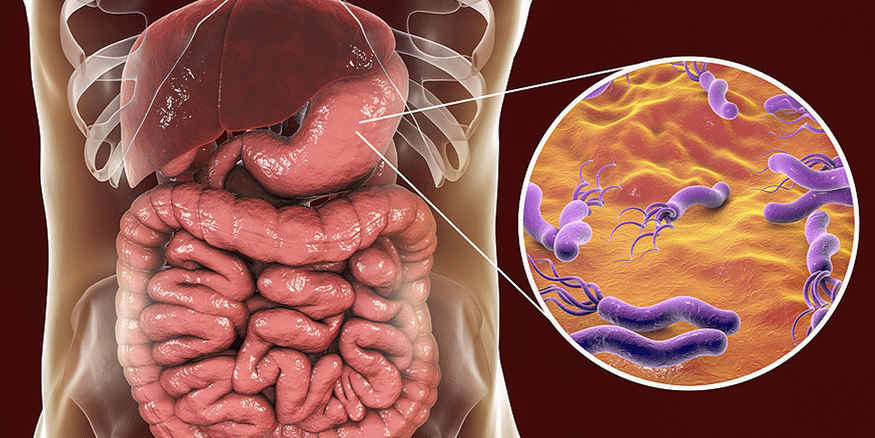What Are H. pylori?
Helicobacter pylori (H. pylori) is a type of bacteria that infects your stomach. It can cause sores and inflammation in the lining of your stomach or the upper part of your small intestine (the duodenum). For some people, an infection can led to stomach cancer.
Infection with H. pylori is common. About two-thirds of the world’s population has it in their bodies. For most people, it never causes any symptoms. But it’s the most common cause of peptic ulcers, which are painful open sores in your digestive tract. In rare cases, it could even lead to stomach cancer.
How Do You Get H. pylori?
H. pylori bacteria usually spread from person to person and also likely through:
- Dirty food, water, or utensils
- Mouth to mouth (kissing)
- Contaminated poop or vomit
Once H. pylori enter your body, it multiplies in the lining of your stomach. This weakens the lining, making it more likely that your stomach acids will cause an ulcer.
Is H. pylori contagious?
Yes. You can get H. pylori if you have contact with the saliva or other body fluids of someone who is already infected.
H. pylori Risk Factors
- Crowded living conditions
- Lack of clean water and sewer service
- Living in close quarters with someone who is infected
- Living in a developing country







Reviews
There are no reviews yet.